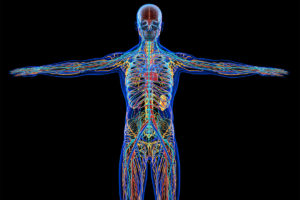Chronic Diseases
Hearing Loss and Physical Function
Research finds that people with hearing loss have significantly poorer physical function over time compared with those with good hearing.
HIIT Research That Unravels Controversies
While HIIT is popular, there are some controversies surrounding it. This column looks at HIIT research to bring some clarity.
Create Inclusivity for Special Populations
More than ever, creating inclusivity is vital to the fitness industry. And, even more importantly, it’s vital to the people we want to help.
Think it of this way: More than 70% of Americans don’t exercise enough to obtain a health benefit (Laskowski 2012). Why is this percentage so high when it’s well-known that even a small amount of physical activity can improve and even prevent some chronic diseases?
Stretching for Hypertension Improvements
Regular stretching for hypertension may be more effective than brisk walking in those with high-normal blood pressure, according to research.
Why the Benefits of Exercise Vary
We know that everyone can experience the benefits of exercise, but it has remained unclear why different people may respond to the same exercise program in different ways. The mechanistic…
Moderate Activity to Avoid Hypertension
If young adults want to prevent hypertension later in life, they may need to do more moderate activity every week, according to a study.
How Exercise Helps Inflammation
Regular exercise helps inflammation as an effective protector and treatment against chronic diseases associated with low-grade inflammation.
Training Cancer Patients
New findings suggest that training cancer patients with both high-intensity and low- to moderate-intensity exercise is beneficial.
The Psoriasis-Fitness Connection
Young men with the lowest fitness levels had a 35% higher risk of developing psoriasis than those with the highest fitness levels.
Black Women Less Likely to Meet Activity Guidelines
Findings from the Black Women’s Health Study show that African American women have a life expectancy 2.7 years shorter than Caucasian American women.
Exercise and a Healthy Liver
A study related to treatment for people with fatty liver disease highlights an opportunity training those with “medical fitness” conditions.
More Exercise Helps Prevent Cancer
New guidelines from the American Cancer Society increase recommended physical activity levels and endorse primarily plant-based whole foods.
Prenatal Exercise Promotes Healthy Circulation
New research findings suggest that prenatal exercise may lower a woman’s risk of developing high blood pressure when pregnant.
Weight Bias in the Health and Fitness Industry
In an industry that strives to help people improve health and fitness, there is still a significant amount of judgment and stigma toward people with obesity.
Cardio Benefits People at Risk for Alzheimer’s Disease
New research shows that improving cardiovascular fitness may benefit areas of the brain that are adversely affected by Alzheimer’s disease progression.
High-Quality Evidence for Tai Chi’s Benefits
Tai chi has proved to be a safe, effective and enjoyable training method for overall health improvement among adults with numerous chronic conditions.
Fitness for People With Fibromyalgia
Do you work with a client who has fibromyalgia? Here’s some good news: In a study of 466 women with fibromyalgia, researchers found that those with higher levels of overall fitness also experienced higher health-related quality of life (HRQoL). Spanish researchers from various institutions conducted the study to determine which components of fitness would be most valuable to target in people with fibromyalgia.
Any Amount of Running Boosts Health
Get motivated to reboot your clients’ running programs for springtime. The good news: Any amount of running is associated with a 27% lower risk of death from any cause, a 30% lower risk of death from heart disease and a 23% lower risk of death from cancer, according to a study reported in the British Journal of Sports Medicine (2019; doi:10.1136/bjsports-2018-100493). An international team of researchers came to this conclusion after reviewing 14 studies that included more than 232,000 participants.
Chair Yoga Improves Quality of Life for Adults With Dementia
Dementia, the fifth-leading cause of death for Americans over 65, affected 5 million American adults in 2014, with numbers growing annually. Psychotropic drugs are often prescribed as therapy, but side effects include dizziness and a higher risk of falls. In the United States, polypharmacy is also an issue for this age group, with more than 44% of men and over 57% of women currently taking five or more medications. Ironically, a side effect of polypharmacy is cognitive impairment.



















